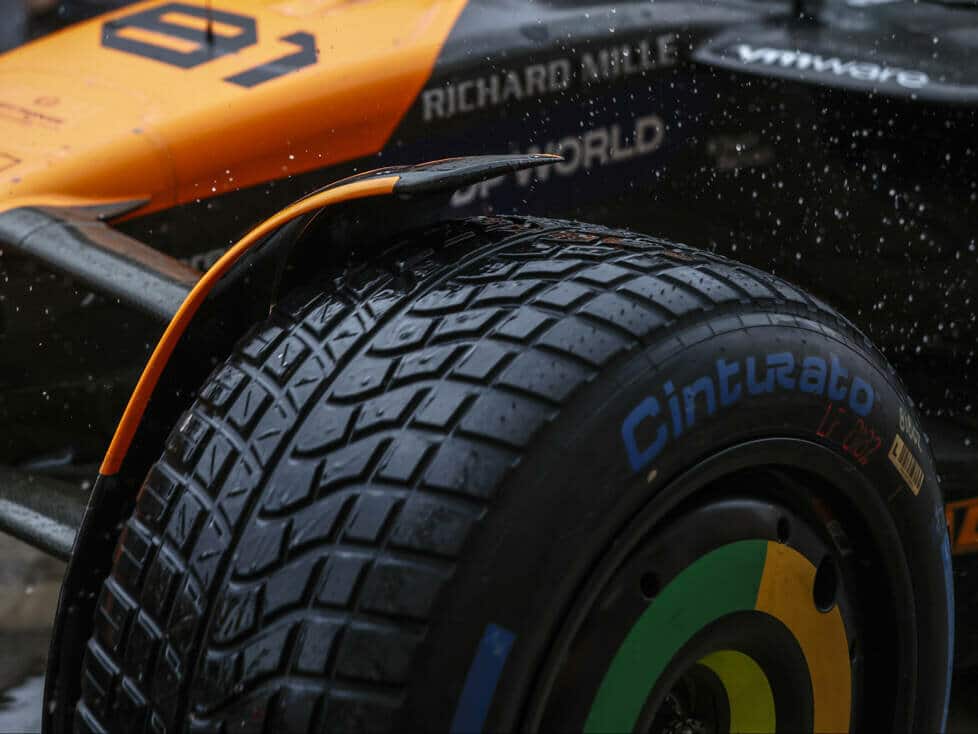Suspicion of water cooling trick in Formula 1: Pirelli and FIA are investigating possible manipulation of tyres
Formula One tire supplier Pirelli says it has seen no signs of anything unusual in the way teams are running their tires amid the latest technical intrigue in F1 over a possible water cooling ploy.
The suspicion that several teams may have found a way to cool their tires during the race by injecting water through the valves is said to have arisen after the Singapore Grand Prix. This was triggered by signs of moisture in the rims after the tires were removed after the Grand Prix at the Marina Bay Circuit.
The FIA was urged by Red Bull to look into the matter, and its head of single-seater vehicles, Nikolas Tombazis, is said to have spoken to Pirelli about it in Brazil and also supervised the disassembly of the tires after the sprint race at Interlagos. The official control report of the sprint race states that all tires inspected after the sprint race complied with the regulations.
Pirelli CEO Mario Isola: “I have no evidence”
Pirelli itself says that after discussions with the FIA, it is more than happy to do everything in its power to help with the investigation, but that the initial analysis does not indicate anything unusual.
Mario Isola, Pirelli’s head of motorsport, said: “I can’t see anything strange from the data we have. I have no evidence. As I said, it is now up to the FIA to decide what to do and let us know if we can support them, because ultimately the only thing we can do is support them.”
“If there is anything we can do to verify the situation or give them advice, we are there to support them. I don’t know anything about a problem, but I have heard the story and tried to understand why it should be. But for the rest, it’s all in the hands of the FIA.”
Isola: How such a trick could work
Isola explains that, while it is theoretically quite easy to inject water into the tires, although the physics involved are quite complicated and it is not without drawbacks in terms of the effect on internal pressure: “How to do it is quite simple,” he says. “You have a valve – and just fill in water.”
“But how the system works is another matter. Basically, it’s a thermal effect: heat transfer between the tire and the rim, which should give the tire more durability or less wear, even if it makes it harder to control the pressure. If you have a vapor in the tire, you obviously lose control of the pressure because you have a higher pressure.”
Isola says that any team injecting water into tires to aid cooling would be in breach of an FIA technical directive issued a few years ago regarding the treatment of tires. “The TD came out a few years ago when there was a discussion about it,” he says.
“There was also a discussion about special gases, which stated that some teams were changing the gas in the tire to better control the pressure. Then someone started talking about the moisture in the tire and why we should have more or less of it.”
“We supply the tires with dry air inside. We have a dryer connected to our system and they supply all tires with dry air, as required by the regulations. It is written in the technical guideline that any modification is prohibited, that is very clear. But then you have to have clear evidence when you have such a situation.”





